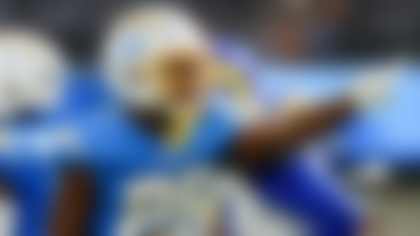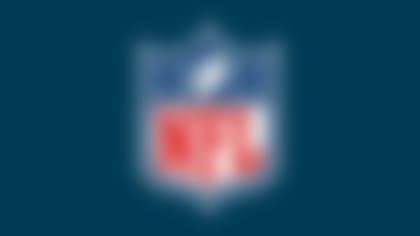My most vivid memory isn't really one that you could see or touch. It was a feeling. It was the smoke and the smell, it was the knowing that normalcy was forever changed.
The immediate aftermath of the September 11 terrorist attacks, living here in the New York metropolitan area, felt so different from anything we've ever felt. And quiet. As if we were all taking it in: the what, the how ... the why.
I've thought about this often. When the New York Giants' charter flight from their Monday night game in Denver landed at Newark International Airport on that Tuesday morning -- that Tuesday, Sept. 11 morning -- it parked at the gate next to United Flight 93, which would depart a short time later. Hours later, that resonated, and kept resonating ...
I've thought about this, too: I was at Denver International Airport when the World Trade Center towers were hit. As the Giants beat writer for the Newark Star-Ledger, I was going home after the Monday night game. Instead, we crowded around TVs in an airport restaurant, watching the horror unfold.
I still have my boarding pass from that day. Countless times I've wondered, what if our plane had taken off? That probably sounds dramatic now, but I do wonder.
Four of us -- Tara Sullivan from the Bergen Record, Paul Schwartz from the New York Post, Neil Best from Newsday and I -- rented a red SUV and drove home. We couldn't comprehend exactly what we were going home to, but 28 hours later, we were home.
On Sept. 13, the Giants returned to the practice field, going through the motions. Players saying they couldn't -- and wouldn't -- concentrate on football as, 10 miles away, bodies were still being pulled from the rubble. As you stood on the Giants' practice field, you could see the Manhattan skyline, forever changed, the city still smoldering, black smoke rising. And the smell permeating the air. You couldn't avoid the smell.
It was then that Michael Strahan led a contingent of players saying the Giants wouldn't play that weekend, and the NFL didn't play that weekend. Players went to Jersey City, where they loaded supplies onto trucks. They went into the city, to firehouses, to visit first responders, to shake the hands of police officers on the streets, to boost morale, to say thank you to weary heroes. It was such an emotional time, where every eye blink seemed to capture an image from a movie set. But it was real, a new reality.
As the healing began, it was so obvious that the qualities we love in our sports -- resolve, resilience, our competitive spirit and heart -- were what we had to rely on in our daily lives. When Mike Piazza hit that home run in the Mets' first game back in New York, it was as if we all rounded the bases with him.
The national anthem sounded a little clearer. The sky felt bluer. We were ready for a distraction. We needed to be distracted. Back then, we used sports to forget.
Today, it's different here. Life goes on. We go on.
But you can still see the Manhattan skyline from the Giants' practice field, and it has never seemed normal -- not for one second -- to see the Twin Towers missing.
And I still think of the smoke and the smell and how, 15 years ago, we used sports to forget.
Today, we use sports to remember.
Follow Kimberly Jones on Twitter @KimJonesSports




